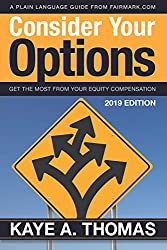
Rating: 5.0/10.
I got this book because options are a big part of tech company compensation and people don’t understand them that well, so I wanted to get a better understanding of them. This book sorta does it, but most of it focuses on all sorts of very technical tax details. It was so taxing (haha) to read that I skimmed most of it. In principle, the options themselves aren’t too complicated, but to be tax-efficient, you have to consider all sorts of cases, like whether you pay short term vs long term capital gains tax, whether you pay when exercising the option or selling the stock, whether it gets treated as taxable income, how to offset capital gains with capital loss, etc.
Some things I learned:
- Options come in two flavors: nonqualified stock options (NSOs) and incentive stock options (ISOs). Generally, NSOs are treated as normal income and is taxed at your marginal tax rate, whereas ISOs are considered long-term capital gain and are taxed at a much lower rate, so ISOs are better.
- Be aware when taxes are incurred: at time of exercising option or at time of selling shares. Sometimes you have to sell shares to cover the tax liability from exercising options. In the worst case, it is possible to owe taxes greater than the value of your stock, if the stock price falls drastically after you exercise the options.
- Startups give options rather than RSUs because they’re more tax efficient: you do not pay tax when granted an option, only when you exercise it.
- You can file a 83b election, which means pay tax earlier than required. This is good for when you expect the stock to go up, so you will have to pay more tax later, in situations where tax is proportional to stock price.
- If you make too much money from stocks, you might trigger Alternative Minimum Tax (AMT), which is another complicated set of tax rules designed to make rich people still pay taxes even if they have no formal income.
- If you want to quit pre-IPO, often you must exercise options within 90 days, but this is highly risky because you must pay tax on unrealized profit; if company does not IPO then you lose everything. Vested stocks are actual equity, you keep them after you quit and simply sell after IPO.
Later, I want to read up on options pricing models (Black-Scholes) and strategies, which seem more interesting. This book is 85% about tax rules, which I guess is useful but extremely tedious. If I’m in such a complicated tax situation, I probably have enough money to hire a professional CPA anyways.
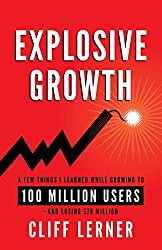
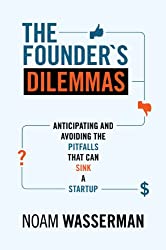
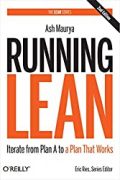
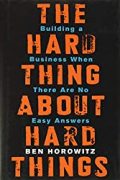
1 thought on “Consider Your Options by Kaye A. Thomas”